- Home
- Neil Gaiman
Fragile Things Page 18
Fragile Things Read online
Page 18
Somewhere a car backfired. I turned, startled, and when I looked back I was alone on the street. I sat there for several moments, on my own.
Charlene opened the door to the Salt Shaker Café. “Hey. Pete. Have you finished out there?”
“Finished?”
“Yeah. C’mon. Harve says your ciggie break is over. And you’ll freeze. Back into the kitchen.”
I stared at her. She tossed her pretty ringlets and, momentarily, smiled at me. I got to my feet, adjusted my white clothes, the uniform of the kitchen help, and followed her inside.
It’s Valentine’s Day, I thought. Tell her how you feel. Tell her what you think.
But I said nothing. I dared not. I simply followed her inside, a creature of mute longing.
Back in the kitchen a pile of plates was waiting for me: I began to scrape the leftovers into the pig bin. There was a scrap of dark meat on one of the plates, beside some half-finished ketchup-covered hash browns. It looked almost raw, but I dipped it into the congealing ketchup and, when Harve’s back was turned, I picked it off the plate and chewed it. It tasted metallic and gristly, but I swallowed it anyhow, and could not have told you why.
A blob of red ketchup dripped from the plate onto the sleeve of my white uniform, forming one perfect diamond.
“Hey, Charlene,” I called, across the kitchen. “Happy Valentine’s Day.” And then I started to whistle.
LOCKS
We owe it to each other to tell stories,
as people simply, not as father and daughter.
I tell it to you for the hundredth time:
“There was a little girl, called Goldilocks,
for her hair was long and golden,
and she was walking in the Wood and she saw—”
“—cows.” You say it with certainty,
remembering the strayed heifers we saw in the woods
behind the house, last month.
“Well, yes, perhaps she saw cows,
but also she saw a house.”
“—a great big house,” you tell me.
“No, a little house, all painted, neat and tidy.”
“A great big house.”
You have the conviction of all two-year-olds.
I wish I had such certitude.
“Ah. Yes. A great big house.
And she went in…”
I remember, as I tell it, that the locks
of Southey’s heroine had silvered with age.
The Old Woman and the Three Bears…
Perhaps they had been golden once, when she was a child.
And now, we are already up to the porridge,
“And it was too—”
“—hot!”
“And it was too—”
“—cold!”
And then it was, we chorus, “just right.”
The porridge is eaten, the baby’s chair is shattered,
Goldilocks goes upstairs, examines beds, and sleeps,
unwisely.
But then the bears return.
Remembering Southey still, I do the voices:
Father Bear’s gruff boom scares you, and you delight in it.
When I was a small child and heard the tale,
if I was anyone I was Baby Bear,
my porridge eaten, and my chair destroyed,
my bed inhabited by some strange girl.
You giggle when I do the baby’s wail,
“Someone’s been eating my porridge, and they’ve eaten it—”
“All up,” you say. A response it is,
Or an amen.
The bears go upstairs hesitantly,
their house now feels desecrated. They realize
what locks are for. They reach the bedroom.
“Someone’s been sleeping in my bed.”
And here I hesitate, echoes of old jokes,
soft-core cartoons, crude headlines, in my head.
One day your mouth will curl at that line.
A loss of interest, later, innocence.
Innocence, as if it were a commodity.
“And if I could,” my father wrote to me,
huge as a bear himself, when I was younger,
“I would dower you with experience, without experience,”
and I, in my turn, would pass that on to you.
But we make our own mistakes. We sleep
unwisely.
The repetition echoes down the years.
When your children grow, when your dark locks begin to silver,
when you are an old woman, alone with your three bears,
what will you see? What stories will you tell?
“And then Goldilocks jumped out of the window
and she ran—”
Together, now: “All the way home.”
And then you say, “Again. Again. Again.”
We owe it to each other to tell stories.
These days my sympathy’s with Father Bear.
Before I leave my house I lock the door,
and check each bed and chair on my return.
Again.
Again.
Again.
THE PROBLEM OF SUSAN
She has the dream again that night.
In the dream, she is standing, with her brothers and her sister, on the edge of the battlefield. It is summer, and the grass is a peculiarly vivid shade of green: a wholesome green, like a cricket pitch or the welcoming slope of the South Downs as you make your way north from the coast. There are bodies on the grass. None of the bodies are human; she can see a centaur, its throat slit, on the grass near her. The horse half of it is a vivid chestnut. Its human skin is nut-brown from the sun. She finds herself staring at the horse’s penis, wondering about centaurs mating, imagines being kissed by that bearded face. Her eyes flick to the cut throat, and the sticky red-black pool that surrounds it, and she shivers.
Flies buzz about the corpses.
The wildflowers tangle in the grass. They bloomed yesterday for the first time in…how long? A hundred years? A thousand? A hundred thousand? She does not know.
All this was snow, she thinks, as she looks at the battlefield.
Yesterday, all this was snow. Always winter, and never Christmas.
Her sister tugs her hand, and points. On the brow of the green hill they stand, deep in conversation. The lion is golden, his arms folded behind his back. The witch is dressed all in white. Right now she is shouting at the lion, who is simply listening. The children cannot make out any of their words, not her cold anger, nor the lion’s thrum-deep replies. The witch’s hair is black and shiny, her lips are red.
In her dream she notices these things.
They will finish their conversation soon, the lion and the witch…
There are things about herself that the professor despises. Her smell, for example. She smells like her grandmother smelled, like old women smell, and for this she cannot forgive herself, so on waking she bathes in scented water and, naked and towel-dried, dabs several drops of Chanel toilet water beneath her arms and on her neck. It is, she believes, her sole extravagance.
Today she dresses in her dark brown dress suit. She thinks of these as her interview clothes, as opposed to her lecture clothes or her knocking-about-he-house clothes. Now she is in retirement, she wears her knocking-about-the-house clothes more and more. She puts on lipstick.
After breakfast, she washes a milk bottle, places it at her back door. She discovers that the next-door’s cat has deposited a mouse head and a paw, on the doormat. It looks as though the mouse is swimming through the coconut matting, as though most of it is submerged. She purses her lips, then she folds her copy of yesterday’s Daily Telegraph, and she folds and flips the mouse head and the paw into the newspaper, never touching them with her hands.
Today’s Daily Telegraph is waiting for her in the hall, along with several letters, which she inspects, without opening any of them, then places on the desk in her tiny study. Since her retirement she visits her study only to write.
Now she walks into the kitchen and seats herself at the old oak table. Her reading glasses hang about her neck on a silver chain, and she perches them on her nose and begins with the obituaries.
She does not actually expect to encounter anyone she knows there, but the world is small, and she observes that, perhaps with cruel humor, the obituarists have run a photograph of Peter Burrell-Gunn as he was in the early 1950s, and not at all as he was the last time the professor had seen him, at a Literary Monthly Christmas party several years before, all gouty and beaky and trembling, and reminding her of nothing so much as a caricature of an owl. In the photograph, he is very beautiful. He looks wild, and noble.
She had spent an evening once kissing him in a summer house: she remembers that very clearly, although she cannot remember for the life of her in which garden the summer house had belonged.
It was, she decides, Charles and Nadia Reid’s house in the country. Which meant that it was before Nadia ran away with that Scottish artist, and Charles took the professor with him to Spain, although she was certainly not a professor then. This was many years before people commonly went to Spain for their holidays; it was an exotic and dangerous place in those days. He asked her to marry him, too, and she is no longer certain why she said no, or even if she had entirely said no. He was a pleasant-enough young man, and he took what was left of her virginity on a blanket on a Spanish beach, on a warm spring night. She was twenty years old, and had thought herself so old…
The doorbell chimes, and she puts down the paper, and makes her way to the front door, and opens it.
Her first thought is how young the girl looks.
Her first thought is how old the woman looks. “Professor Hastings?” she says. “I’m Greta Campion. I’m doing the profile on you. For the Literary Chronicle.”
The older woman stares at her for a moment, vulnerable and ancient, then she smiles. It’s a friendly smile, and Greta warms to her. “Come in, dear,” says the professor. “We’ll be in the sitting room.”
“I brought you this,” says Greta. “I baked it myself.” She takes the cake tin from her bag, hoping its contents hadn’t disintegrated en route. “It’s a chocolate cake. I read on-line that you liked them.”
The old woman nods and blinks. “I do,” she says. “How kind. This way.”
Greta follows her into a comfortable room, is shown to her armchair, and told, firmly, not to move. The professor bustles off and returns with a tray, on which are teacups and saucers, a teapot, a plate of chocolate biscuits, and Greta’s chocolate cake.
Tea is poured, and Greta exclaims over the professor’s brooch, and then she pulls out her notebook and pen, and a copy of the professor’s last book, A Quest for Meanings in Children’s Fiction, the copy bristling with Post-it notes and scraps of paper. They talk about the early chapters, in which the hypothesis is set forth that there was originally no distinct branch of fiction that was only intended for children, until the Victorian notions of the purity and sanctity of childhood demanded that fiction for children be made…
“Well, pure,” says the professor.
“And sanctified?” asks Greta, with a smile.
“And sanctimonious,” corrects the old woman. “It is difficult to read The Water Babies without wincing.”
And then she talks about ways that artists used to draw children—as adults, only smaller, without considering the child’s proportions—and how the Grimms’ stories were collected for adults and, when the Grimms realized the books were being read in the nursery, were bowdlerized to make them more appropriate. She talks of Perrault’s “Sleeping Beauty in the Wood,” and of its original coda in which the Prince’s cannibal ogre mother attempts to frame the Sleeping Beauty for having eaten her own children, and all the while Greta nods and takes notes, and nervously tries to contribute enough to the conversation that the professor will feel that it is a conversation or at least an interview, not a lecture.
“Where,” asks Greta, “do you feel your interest in children’s fiction came from?”
The professor shakes her head. “Where do any of our interests come from? Where does your interest in children’s books come from?”
Greta says, “They always seemed the books that were most important to me. The ones that mattered. When I was a kid, and when I grew. I was like Dahl’s Matilda…. Were your family great readers?”
“Not really…. I say that, it was a long time ago that they died. Were killed. I should say.”
“All your family died at the same time? Was this in the war?”
“No, dear. We were evacuees, in the war. This was in a train crash, several years after. I was not there.”
“Just like in Lewis’s Narnia books,” says Greta, and immediately feels like a fool, and an insensitive fool. “I’m sorry. That was a terrible thing to say, wasn’t it?”
“Was it, dear?”
Greta can feel herself blushing, and she says, “It’s just I remember that sequence so vividly. In The Last Battle. Where you learn there was a train crash on the way back to school, and everyone was killed. Except for Susan, of course.”
The professor says, “More tea, dear?” and Greta knows that she should leave the subject, but she says, “You know, that used to make me so angry.”
“What did, dear?”
“Susan. All the other kids go off to Paradise, and Susan can’t go. She’s no longer a friend of Narnia because she’s too fond of lipsticks and nylons and invitations to parties. I even talked to my English teacher about it, about the problem of Susan, when I was twelve.”
She’ll leave the subject now, talk about the role of children’s fiction in creating the belief systems we adopt as adults, but the professor says, “And tell me, dear, what did your teacher say?”
“She said that even though Susan had refused Paradise then, she still had time while she lived to repent.”
“Repent what?”
“Not believing, I suppose. And the sin of Eve.”
The professor cuts herself a slice of chocolate cake. She seems to be remembering. And then she says, “I doubt there was much opportunity for nylons and lipsticks after her family was killed. There certainly wasn’t for me. A little money—less than one might imagine—from her parents’ estate, to lodge and feed her. No luxuries…”
“There must have been something else wrong with Susan,” says the young journalist, “something they didn’t tell us. Otherwise she wouldn’t have been damned like that—denied the Heaven of further up and further in. I mean, all the people she had ever cared for had gone on to their reward, in a world of magic and waterfalls and joy. And she was left behind.”
“I don’t know about the girl in the books,” says the professor, “but remaining behind would also have meant that she was available to identify her brothers’ and her little sister’s bodies. There were a lot of people dead in that crash. I was taken to a nearby school—it was the first day of term, and they had taken the bodies there. My older brother looked okay. Like he was asleep. The other two were a bit messier.”
“I suppose Susan would have seen their bodies, and thought, they’re on holidays now. The perfect school holidays. Romping in meadows with talking animals, world without end.”
“She might have done. I only remember thinking what a great deal of damage a train can do, when it hits another train, to the people who were traveling inside. I suppose you’ve never had to identify a body, dear?”
“No.”
“That’s a blessing. I remember looking at them and thinking, What if I’m wrong, what if it’s not him after all? My younger brother was decapitated, you know. A god who would punish me for liking nylons and parties by making me walk through that school dining room, with the flies, to identify Ed, well…he’s enjoying himself a bit too much, isn’t he? Like a cat, getting the last ounce of enjoyment out of a mouse. Or a gram of enjoyment, I suppose it must be these days. I don’t know, really.”
She trails off. And then, after some time, she says, “I’
m sorry dear. I don’t think I can do any more of this today. Perhaps if your editor gives me a ring, we can set a time to finish our conversation.”
Greta nods and says of course, and knows in her heart, with a peculiar finality, that they will talk no more.
That night, the professor climbs the stairs of her house, slowly, painstakingly, floor by floor. She takes sheets and blankets from the airing cupboard, and makes up a bed in the spare bedroom, at the back. It is empty but for a wartime austerity dressing table, with a mirror and drawers, an oak bed, and a dusty applewood wardrobe, which contains only coathangers and a cardboard box. She places a vase on the dressing table, containing purple rhododendron flowers, sticky and vulgar.
She takes from the box in the wardrobe a plastic shopping bag containing four old photographic albums. Then she climbs into the bed that was hers as a child, and lies there between the sheets, looking at the black-and-white photographs, and the sepia photographs, and the handful of unconvincing color photographs. She looks at her brothers, and her sister, and her parents, and she wonders how they could have been that young, how anybody could have been that young.
After a while she notices that there are several children’s books beside the bed, which puzzles her slightly, because she does not believe she keeps books on the bedside table in that room. Nor, she decides, does she usually have a bedside table there. On the top of the pile is an old paperback book—it must be more than forty years old: the price on the cover is in shillings. It shows a lion, and two girls twining a daisy chain into its mane.
The professor’s lips prickle with shock. And only then does she understand that she is dreaming, for she does not keep those books in the house. Beneath the paperback is a hardback, in its jacket, of a book that, in her dream, she has always wanted to read: Mary Poppins Brings in the Dawn, which P. L. Travers had never written while alive.

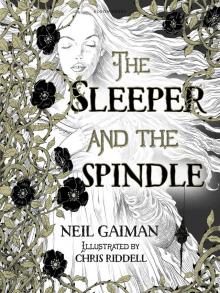 The Sleeper and the Spindle
The Sleeper and the Spindle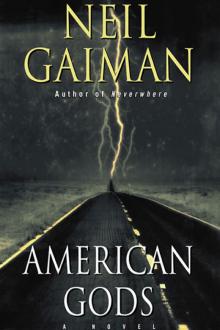 American Gods
American Gods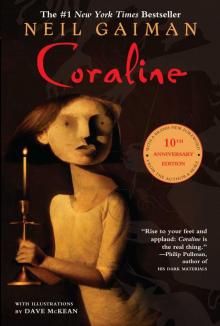 Coraline
Coraline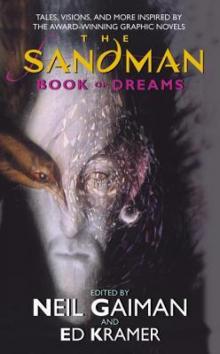 The Sandman: Book of Dreams
The Sandman: Book of Dreams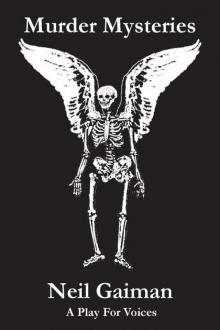 Murder Mysteries
Murder Mysteries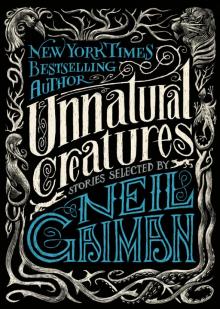 Unnatural Creatures
Unnatural Creatures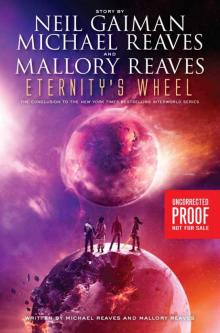 Eternity's Wheel
Eternity's Wheel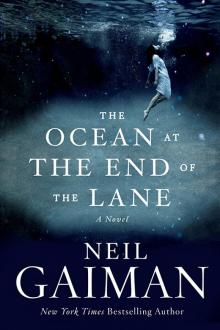 The Ocean at the End of the Lane
The Ocean at the End of the Lane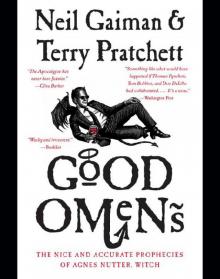 Good Omens
Good Omens Stardust
Stardust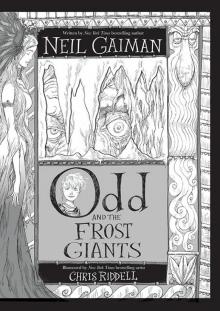 Odd and the Frost Giants
Odd and the Frost Giants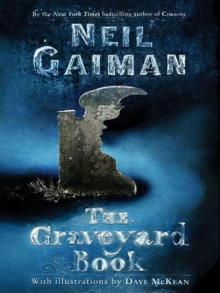 The Graveyard Book
The Graveyard Book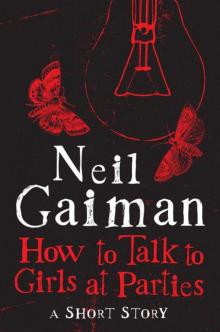 How to Talk to Girls at Parties
How to Talk to Girls at Parties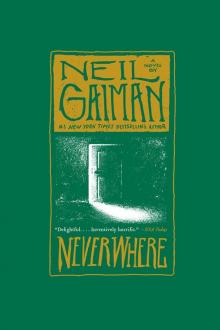 Neverwhere
Neverwhere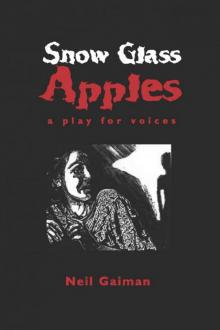 Snow, Glass, Apples
Snow, Glass, Apples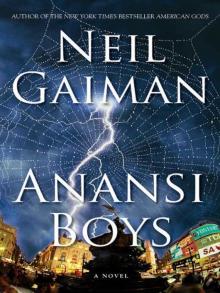 Anansi Boys
Anansi Boys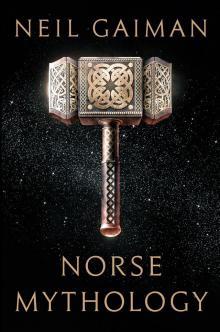 Norse Mythology
Norse Mythology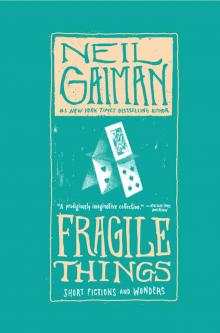 Fragile Things: Short Fictions and Wonders
Fragile Things: Short Fictions and Wonders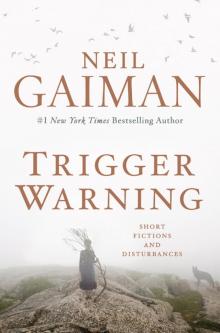 Trigger Warning: Short Fictions and Disturbances
Trigger Warning: Short Fictions and Disturbances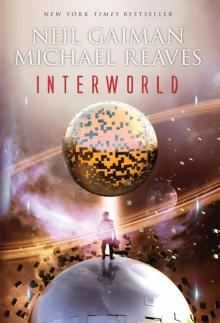 InterWorld
InterWorld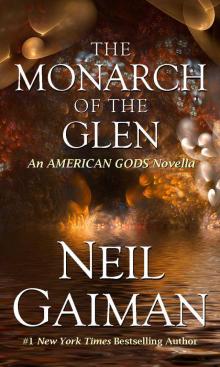 The Monarch of the Glen
The Monarch of the Glen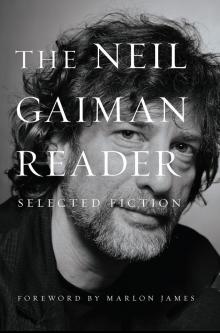 The Neil Gaiman Reader
The Neil Gaiman Reader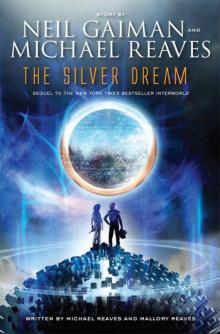 The Silver Dream
The Silver Dream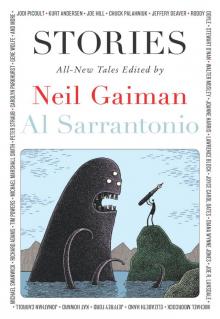 Stories
Stories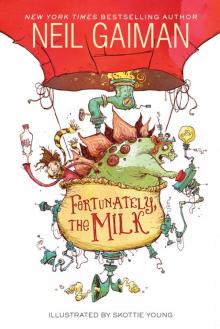 Fortunately, the Milk
Fortunately, the Milk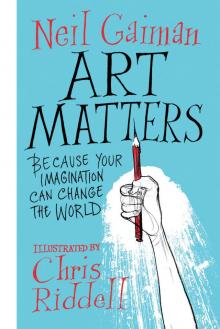 Art Matters
Art Matters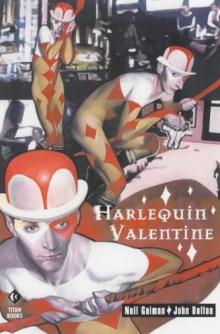 Harlequin Valentine
Harlequin Valentine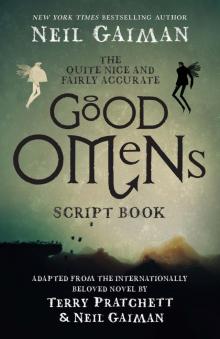 The Quite Nice and Fairly Accurate Good Omens Script Book
The Quite Nice and Fairly Accurate Good Omens Script Book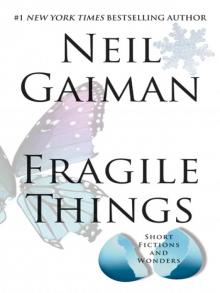 Fragile Things
Fragile Things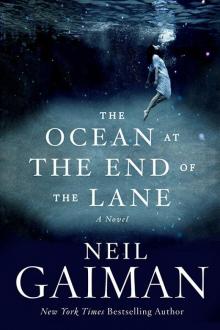 The Ocean at the End of the Lane: A Novel
The Ocean at the End of the Lane: A Novel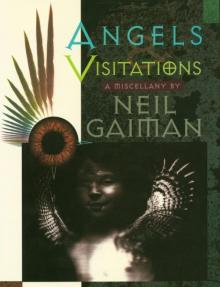 Angels and Visitations
Angels and Visitations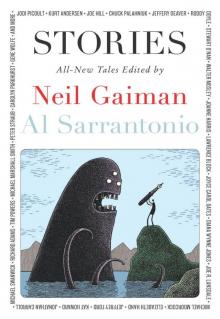 Stories: All-New Tales ngss-1
Stories: All-New Tales ngss-1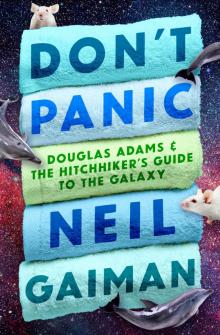 Don't Panic
Don't Panic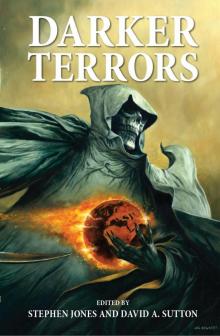 Darker Terrors
Darker Terrors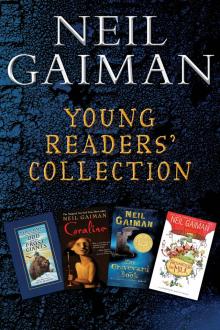 Neil Gaiman Young Readers' Collection
Neil Gaiman Young Readers' Collection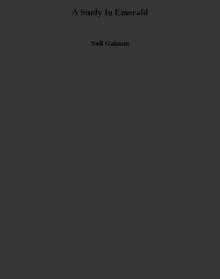 A Study In Emerald
A Study In Emerald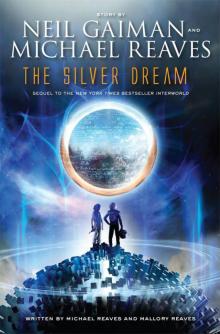 The Silver Dream: An InterWorld Novel
The Silver Dream: An InterWorld Novel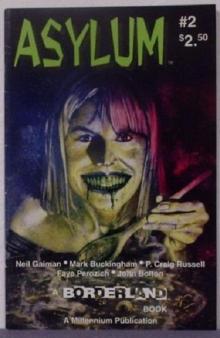 Feeders and Eaters
Feeders and Eaters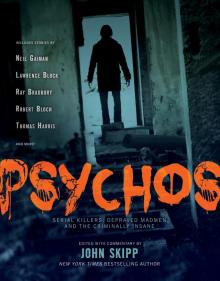 Psychos
Psychos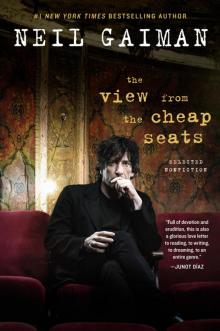 The View from the Cheap Seats
The View from the Cheap Seats Trigger Warning
Trigger Warning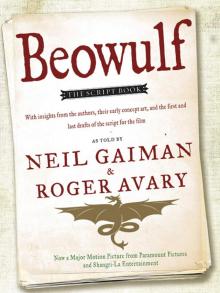 Beowulf
Beowulf Nessun Dove
Nessun Dove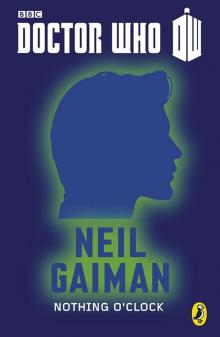 Doctor Who: Nothing O'Clock: Eleventh Doctor: 50th Anniversary
Doctor Who: Nothing O'Clock: Eleventh Doctor: 50th Anniversary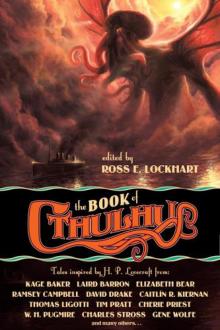 The Book of Cthulhu
The Book of Cthulhu